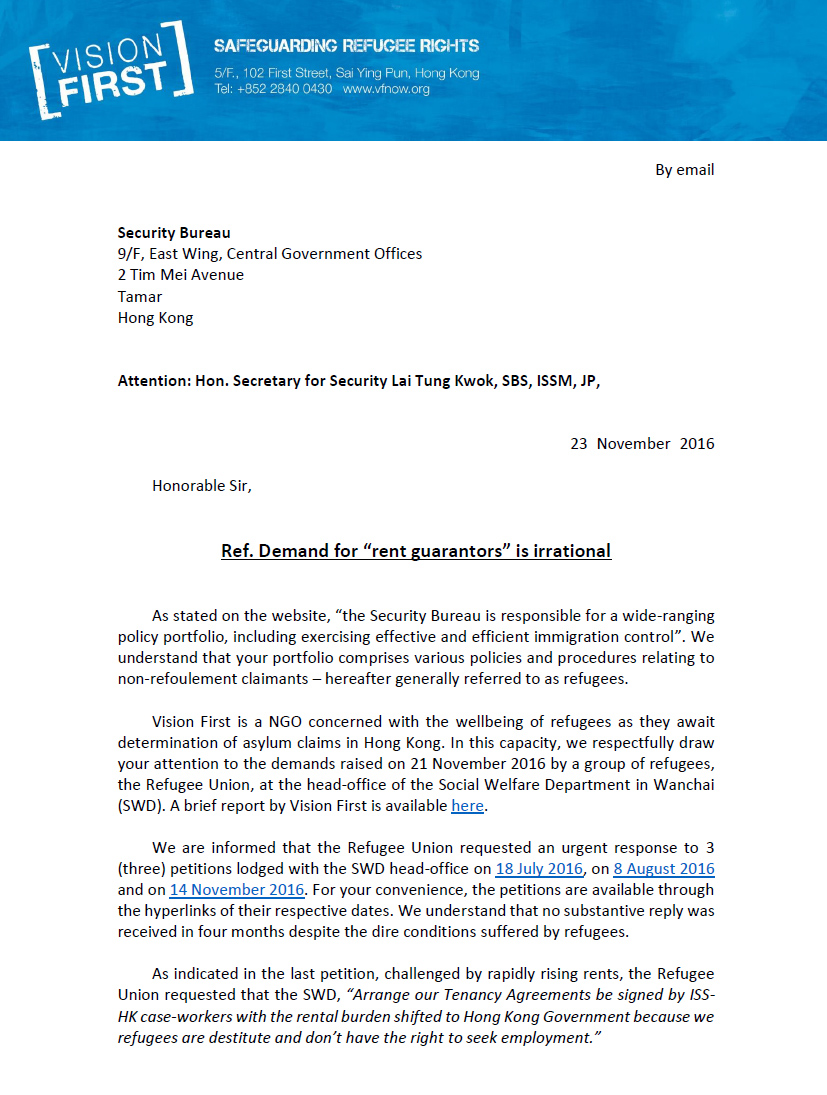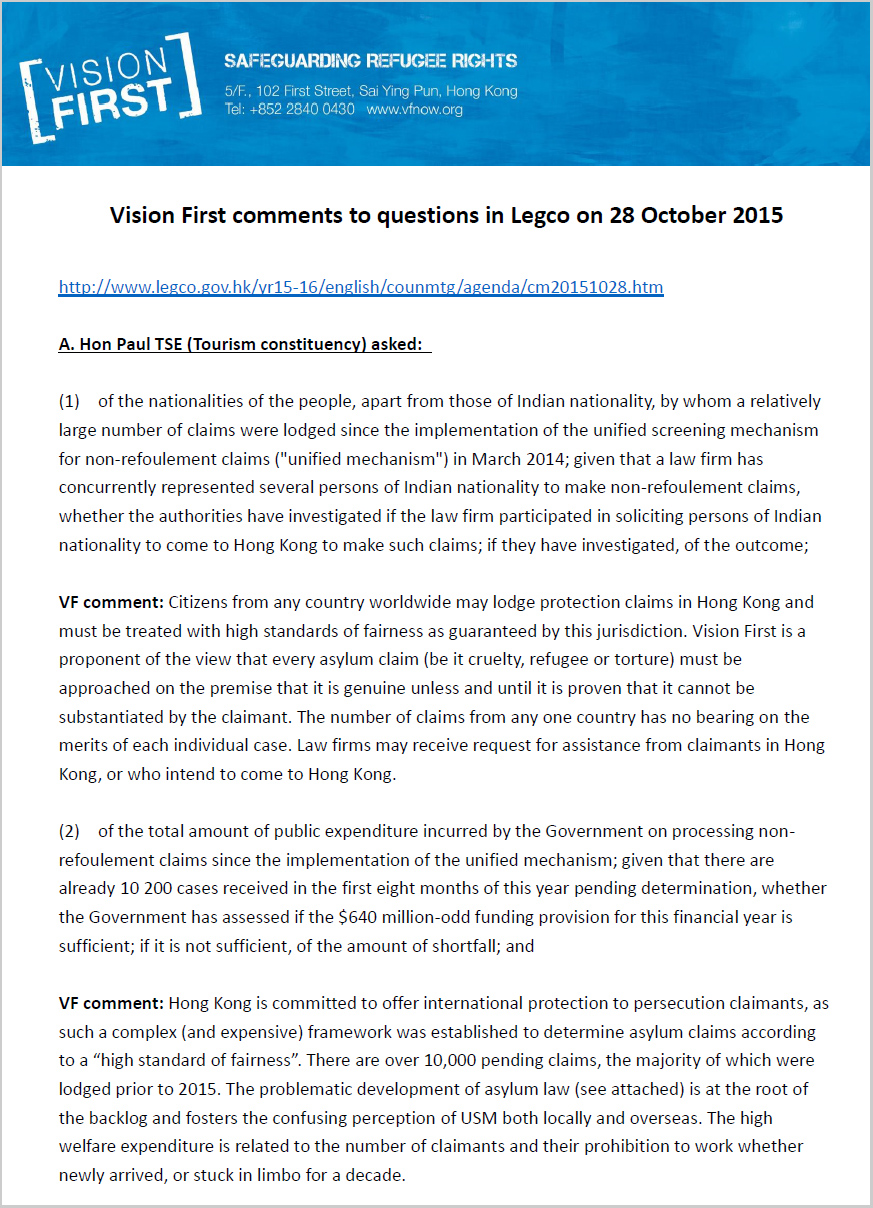SWD arbitrarily violates fundamental human rights of refugees
Dec 7th, 2016 | Advocacy, Food, Government, Housing, Immigration, Rejection, VF Opinion, Welfare | Comment
The Refugee Union published the Social Welfare Department reply to a petition requesting the urgent increase in welfare last enhanced in January 2014. Regrettably, the SWD informs that there are no plans to adjust welfare to interim inflation and skyrocketing rents after three years.
The SWD alleges that the assistance meets basic needs with 1500$ in monthly rent, 40$ a day for groceries and 200$ transportation, with zero provision for clothes, shoes, shaving cream, household detergents, reading glasses, haircuts, mattresses, blankets, cooking and kitchen ware, furniture, diapers, school supplies and transportation, credit for phones, dental service etc. The SWD also maintains that refugees require a single roll of toilet paper per month.
Magnet Effect and Mathematics
Vision First believe there is little substance in the justification that refugees should be denied anything more than a very basic assistance “so as to avoid a magnet effect.” As there is no evidence of any such “Magnet Effect”, it appears this claim is a wholly speculative allegation. Indeed, the Security Bureau and SWD in their own paper issued to the Legislative Council on 8 June 2015 admitted that they have a duty to meet the basic needs of refugees in full. Thus, the Magnet Effect would only apply to extra assistance, above and beyond meeting basic needs.
“The Social Welfare Department (SWD) is charged with the responsibility to provide the assistance programme through non-governmental organisations (NGOs) since April 2006. The objective of the assistance programme is to ensure that non-refoulement claimants will not, during their presence in Hong Kong, become destitute. The assistance programme is not intended to provide them with extra assistance than is necessary to meet their basic needs, so as to avoid any magnet effect which may have serious implications on the sustainability of the assistance programme and on our immigration control.”
In reality, the stringency of immigration controls has not correlation with the well-being of refugees who already sought the protection of Hong Kong Government. The Immigration Department may learn from the past, but the SWD should not raise border integrity as an excuse to oppress local refugees. Further, numbers have raised manifold since aid started in 2006, suggesting that welfare is not the reason why refugees travel here. Denying adequate levels of welfare is just a policy to oppress refugees in order to encourage constructive refoulement. After six months’ of deliberation the SWD confirms that:-
“The Government considers that the current provisions are sufficient to meet the basic needs of service users and has no plan to change the arrangement at this stage.”
However, the Refugee Union’s petition reports that welfare fail to meet the basic needs of virtually all refugees. Almost without exception the assistance by SWD and ISS-HK falls short of rental amounts, utilities, food and travel money, besides lacking the above necessities. In this regard, the suggestion that refugees in need of more assistance should provide justification to ISS-HK is frankly nonsense, as the assistance requested is to meet basic needs, and not to get something above and beyond the costs of such needs.
ISS-HK caseworkers treat requests for such basic assistance with typical rejection. Refugees are actually not asking for more assistance above and beyond meeting their basic needs. They are instead asking ISS-HK and the SWD for full assistance in order to meet basic needs – the difference is crucial. There is even greater fallacy in the advice to seek assistance from ISS-HK to locate suitable rooms because the price of subdivided, cubicle and coffin rooms is close to double the rental allowance. Thus 10,000 refugees evidently “have difficulty in so doing” and caseworkers stand powerless before landlords, despite non-binding promissory letters from rent guarantors, local or overseas. Obviously landlords deem such letters non-bankable. Finally, while it is correct that tenancy agreements reflect the terms and conditions agreed between tenants and landlords, it is wholly unreasonable to expect destitute refugees without the right to work to “ensure he fulfills the responsibilities thereunder”.
Legitimate Expectation
Vision First notes that under Hong Kong law and their own public statements, the Security Bureau and SWD have obligations to meet all basic needs of all refugees in Hong Kong. That is a legitimate expectation the refugee community relies upon. There are no exceptions under the law. It is disturbing that the conduct of these departments’ violates refugees’ rights by putting them at real and immediate risk. The Security Bureau and SWD have failed in their fiduciary duty towards destitute and highly vulnerable refugees.
SWD representations are false
The SWD’s reply to the Refugee Union’s reasonable demands is a false representation to refugees and the public that SWD meets the basic needs of protection claimants. In fact, the SWD arbitrarily violates the fundamental human rights of the vast majority of refugees in Hong Kong.
In our view, this conduct is unconscionable and unlawful as the SWD stubbornly refuses to meet refugees’ basic needs and further states that it will not review the current unsatisfactory levels of assistance. The next step will be a legal challenge.
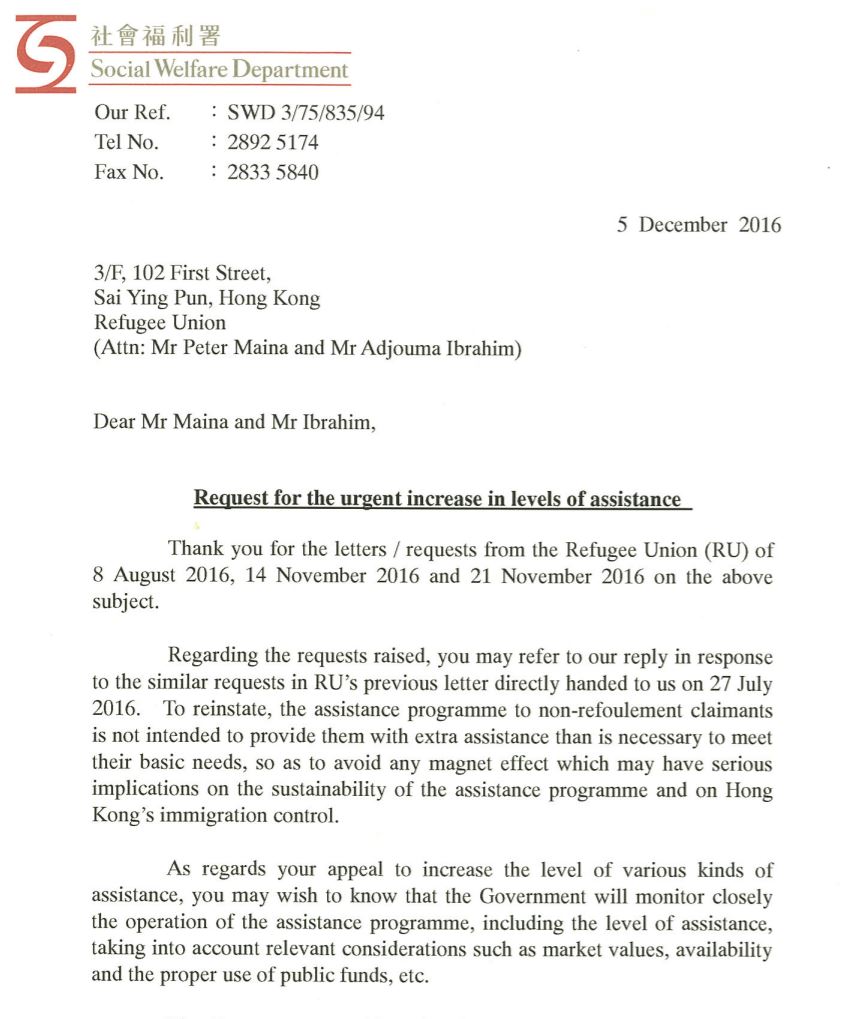
Refugee on court bail for three years without welfare
Dec 5th, 2016 | Advocacy, Immigration, Legal, VF Opinion, Welfare | Comment
On 30 November 2016, the lawyers of WRPK received a call from the Immigration Department inviting the Sri Lankan refugee to Castle Peak Bay Immigration Centre (CIC) to collect a “Form 8” recognizance document. Without such forms refugees are unable to approach the Social Welfare Department (SWD) for welfare assistance, or the Hospital Authority for medical wavers, as these documents are required by government departments to verify the ongoing status of asylum seekers.
What is highly unusual about this case, is that WRPK was denied a “Form 8” since he was released on court bail in October 2013, despite the best efforts of his legal team. For more than three years he suffered severe destitution and was unable to meet his most basic needs of shelter and food, as refugees are banned from working. Several legal letters seeking assistance in this respect went unattended.
In April 2015 Vision First emailed the Immigration Department informing that the delay was “causing WRPK preventable and unreasonable hardship”, for reason that he could not wait indefinitely for the court verdict before being issued with a recognizance form as he was destitute. A few days later Immigration responded, “WRPK may approach the SWD and, for the purpose of clarifying his non-refoulement claimant status, SWD will inquire our Removal Assessment and Litigation Section.” It sounded hopeful.
However, when WRPK approached the SWD he was again informed that without a recognizance form assistance was impossible. There is an inherent injustice in the asylum process when refugees are bounced between the Immigration Department and SWD by front-line staff who regurgitate unhelpful responses without considering the physical hardship of those seeking help. The protection system short-circuits when government officials thing, “It’s not my problem!”
Where criminal charges do not merit immediate custodial sentences, it is one issue to demand that refugees attend court while released on bail with government assistance, while it is another one to expect impoverished refugees to undergo lengthy prosecution without welfare. This procedural gap is inherently wrong. Such a failure amounts to a cruel and degrading treatment that indeed promotes “constructive refoulement”, that is, indirect policies that discourage refugees from claiming asylum and encourage voluntary departures from Hong Kong.
Vision First is disturbed by this case because the magistrate was repeatedly informed that the defendant had been denied welfare – but nothing was done. Time and again, the defense team informed the court it was the prosecution’s duty to inquire with Immigration the reasons why a recognizance form would not be issued – but nothing was done. Ignoring the predicament of a vulnerable refugee, the court adjourned the case repeatedly for three years, while WRPK remained destitute.
Further, Vision First is concerned that the magistrate Joseph To may have prejudiced WRPK rights by demanding that he attend court every two weeks, instead of the customary three months, pending the result of his USM claim. This exercise in futility is an avoidable waste of the court’s time considering that asylum bids may take up to a decade. To make matters worse, the magistrate set an otherwise quick adjournment to the last order of the day, forcing WRPK and his legal team to sit on the benches wasting government resources.
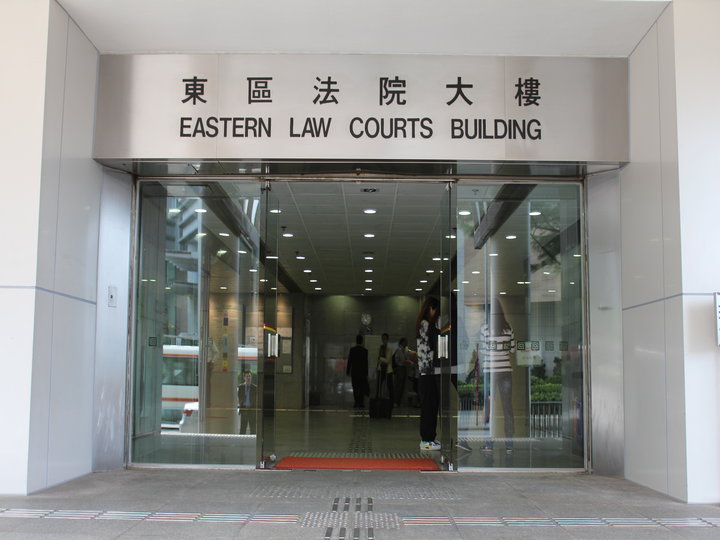
Open letter to Security Bureau – Demand for “rent guarantors” is irrational
Nov 23rd, 2016 | Advocacy, Government, Housing, VF Opinion, Welfare | Comment
Is the noose tightening around the neck of refugees?
Sep 1st, 2016 | Advocacy, Crime, Housing, Immigration, Rejection, VF Opinion, Welfare | Comment
Vision First attended court yesterday to witness two refugee members being prosecuted for allegedly working unlawfully. The prosecutor revealed that the employer will testify as a witness. Bail was denied.
Let’s stop and think. Wouldn’t it normally be the case that prosecutors seek the assistance of the unlawfully employed persons to indict unscrupulous employers, rather than the other way around? Generally speaking, how can refugees conscientiously abide by the law when the material assistance they received fails to meet their most basic needs, rent in particular?
Aside from promoting a regrettable form of xenophobia and widespread misinformation, it appears that the Government is accomplishing little more than slamming the door shut for refugees who mistakenly hoped for a more favorable outcome when seeking refuge in Hong Kong.
A plethora of problems germinates in the the well-known failures of the Unified Screening Mechanism to then spread through various branches of government tasked with dealing with refugees and finally reach deep down in the underground economy where a growing number of destitute asylum seekers are forced to find informal relief.
First, one might consider the statistics published by the Immigration Department informing that, between 2009 and 2016, just 55 of 9214 asylum claims were substantiated. This equates to a success rate of 0.6% for seeking asylum in Hong Kong compared to 30-50% in European countries, for example. Despite authorities being quoted as saying that this rate is indicative of abuse, one might question the credibility of the process that rejects 166 for every 1 case accepted.
That being said, few people realize that successful claimants do not earn the right of abode, will not get ID cards, are prohibited from working under penalty of 36 month prison (maximum sentence) and, together with the other 11,169 asylum seekers, must rely on a monthly assistance of 1200$ in food coupons, 1500$ in rent assistance and about 500$ for utilities and transport.
Second, packaged as ‘humanitarian assistance’ the above assistance was designed to remove the sting of destitution in one of the most expensive cities in the world. That is of little consolation for eleven thousand men, women and children who are expected to cope gratefully, or face hefty prison sentences for ‘breaking the law’ by earning necessary cash on the side.
Such ‘humanitarian assistance’ is in fact more a curse than a blessing. It pulls a seemingly compassionate mask over a draconian policy designed to quash hope in recipients. Overworked magistrates swiftly conclude that as welfare is provided, refugees who work illegally deserve to be incarcerated 15 to 22 months according to plea. Thus sentencing is reduced to little more than ticking the boxes with no consideration of real life circumstances.
Third, the rental crisis is spiraling towards an abyss. On the one hand, contrary to general trends, prices for subdivided rooms have increased to at least 3000$, and availability is very scarce. On the other hand, the SWD contractor ISS-HK is reported by refugees to have started to demand they produce letters from resident sponsors endorsing rent surpluses before new tenancy agreements are accepted for the disbursement of the meagre rent assistance. This could prove challenging.
While some refugees may resourcefully raise funds, these are largely informal arrangements with friends, partners, donors and churches/NGOs that might not translate into sponsorship agreements. “People are going to lose their rooms and become homeless” commented a refugee who visited Vision First for advice.
Fourth, an increasing number of refugees report that the Immigration Department demands detailed written significations. On the one side, the time it takes to lodge new claims is increasing, thus preventing destitute claimants from obtaining assistance. On the other, those whose application fails on signification are likely to abscond and are thus prevented from obtaining assistance. It isn’t hard to guess that these refugees will find support in the underground economy where also the lure of criminal activity is strong.
Fifth, applications for “BOR 2 Claims” appear to be denied to a greater extent than before (Hong Kong Bill of Rights Ordinance, Art. 2). Until recently they were the last resort for rejected USM claimants fearful of imminent removal. Since it seems the government has yet to formulate a policy to deal with these claims, rejecting such applications might be a way contain a problematic surge. However, encouraging refugees to go underground creates graver problems. The maxim “better the devil you know than the devil you don’t” ought to be considered.
Sixth, residents employ refugees due to a severe shortage of unskilled labour. For undocumented workers, monthly salaries in restaurants are up to 8000$ for washing dishes and 15,000$ for cooking. A team can be paid as much as 10,000$ to unload heavy containers, irrespective of time; while the pay is about 600$ a day for demolition work in flats and for night shifts repairing roads for government contractors. Refugees are indeed sought after, and encouraged to introduce friends, because local workers turn their nose on strenuous work, or expect higher payment. In this respect, the government ought to consider a “migrant labour scheme” which refugees could join with an agreement to leave Hong Kong afterwards.
Seventh, a blatant inconsistency in criminal sentencing makes it attractive for desperate refugees to engage in criminal activity such as theft, soliciting or drug trafficking, rather than perform licit work as detailed above. For example, it has come to our attention that refugees might be sentenced to 8 months in prison for trafficking, 4 months for soliciting and a few weeks for shoplifting. Irrespective of moral concerns and social deviancy, the obvious imprisonment advantage is a factor.
These issues combine to overwhelm refugees who are first failed by the government departments tasked to protect and assist them, and then exploited by landlords and employers who unashamedly prey on their need for cash. And when refugees are caught red handed, they are the ones to bear the consequences and the full weight of the law. Indeed, as a perceptive refugee succinctly put it, “Hong Kong is a closed club”, and membership is protected.
It comes as no surprise that certain media outlets foment the flames of propaganda reporting every transgression by refugees who find the noose tightening around their neck in an increasingly toxic and unsustainable environment.
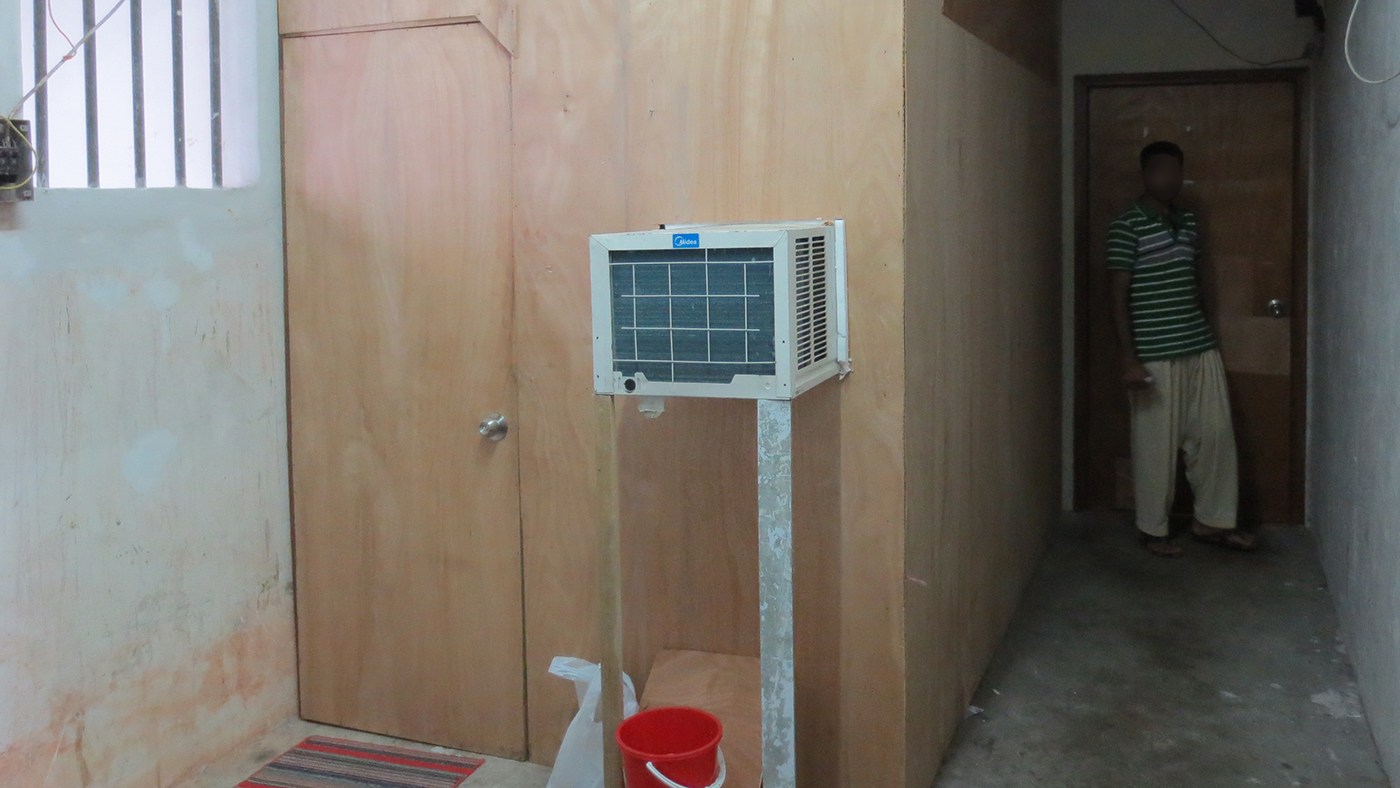
Immigration violates law by delaying opening claims to deter new asylum seekers?
Aug 24th, 2016 | Government, Immigration, Personal Experiences, Rejection, VF Opinion, Welfare | Comment
Vision First finds it unacceptable that delays by the Immigration Departments in opening non-refoulement claims might compel new asylum seekers to risky behaviour, if not criminal activity, to secure food and shelter. As an example, we report the case of Jenny (not her real name), a woman made vulnerable to sexual exploitation by the long wait she is enduring to access welfare services.
Jenny’s first trip outside her country was a long flight to Guangzhou where she was promised an attractive job in a garment factory. Jenny was experienced. She had supervised a team of seamstresses in a textile factory in her country. However, when the sweet promises of a local ‘employment agent’ allured her to a higher salary in China, she accepted.
The agent arranged Jenny’s passport and promised her parents a cash gift when their daughter arrived in China, as a token of the remittances she would soon be sending back to improve their lives. With so many clothes labelled with “Made in China”, it wasn’t hard for the 24 year-old to believe that a rewarding job in a modern factory awaited her.
The agent accompanied Jenny on the flight to Guangzhou and then to Fuzhou where she met with Chinese counterparts who paid her 70,000 RMB for the ‘new hire’. It wasn’t long before Jenny discovered there was no factory, no job and no salary. Instead, there was an older Chinese man who would take Jenny as his ‘wife’ for three months in sexual slavery. Jenny had been duped and trafficked. Today she fights back tears explaining that other women were given to several ‘husbands’.
In April 2016 the traffickers arranged her travel to Hong Kong to renew her China visa. The handlers held her passport, but apparently failed to control her day and night, thus providing Jenny an opportunity to escape. Jenny finally confided in a stranger who turned out to be a member of the Refugee Union. Jenny then sought asylum in Hong Kong. Traffickers are known to kidnap and torture escapees who naively return home where police protection is unavailable.
It’s been four months since Jenny applied with the Immigration Department and still her Unified Screen Mechanism (USM) claim has not been duly opened. As of consequence, despite being issued with an Immigration Recognizance Form, Jenny has been unable to access support from the Social Welfare Department. Her name is allegedly not on the computer database that SWD officers check to establish eligibility for assistance.
Jenny explained to Vision First that Immigration officers seemingly delay opening her asylum bid because an interpreter cannot be found. She is not alone in lamenting what we argue is a blatant protection failure. It is indeed hard to accept that for Jenny, and others known to Vision First, Immigration officers maintain there are no French interpreters available. There are over 80,000 French nationals in Hong Kong. Surely a number of them must be seeking a living as registered interpreters.
Protection fails when the Immigration Department’s inability to promptly provide interpretation causes Jenny, a victim of trafficking for sexual exploitation, to live on the streets, where she begs for food and shelter. Her vulnerability is further augmented by her feeling compelled to engage in the very behaviour she fled to seek protection in Hong Kong in the first place!
It is regrettable that Jenny is in crowded company in this “life-before-asylum crisis” because the Immigration Department postpones the opening of new asylum claims, presumably hoping that claimants will just give up and leave?
In addition, Vision First is troubled by a second crisis directly connected to this one, namely the frequent rejection of applications before asylum seekers are offered a chance to obtain free legal advice, as required by law. The following reason is often given to would-be asylum seekers whose bid is rejected: “Your written signification does not give a general indication of your reasons for claiming non-refoulement protection in Hong Kong, being reasons that relate to an act falling within the meaning of torture, BOR3 and/or persecution risk.”
One should be reminded that Hon. Judge Saunders argued in the FB Judgment that: “It is only sensible that the (Immigration) Department should take a broad and liberal view of statements of risk or danger upon return to their country of origin, made by any person who does not have the right of abode in Hong Kong. To insist upon a particular formula being expressed by a person would be contrary to the high degree of fairness required by Prabakar, and would be tantamount to sitting back and putting the person concerned to strict proof of the claim.” (HCAL 51/2007)
There are “no magic words” to be use by claimants seeking asylum. No special words are necessary in the first letter that triggers Hong Kong Government’s international obligation towards refugees.
However, we cannot but question the Immigration Department’s treatment of vulnerable asylum seekers who are denied timely protection, and thus vital welfare, despite being in an obvious state of destitution – their risky behaviour being proof of such immiserating conditions.
The law is not always right, but the magic words argument is clear, and in these cases it appears to be blatantly violated.
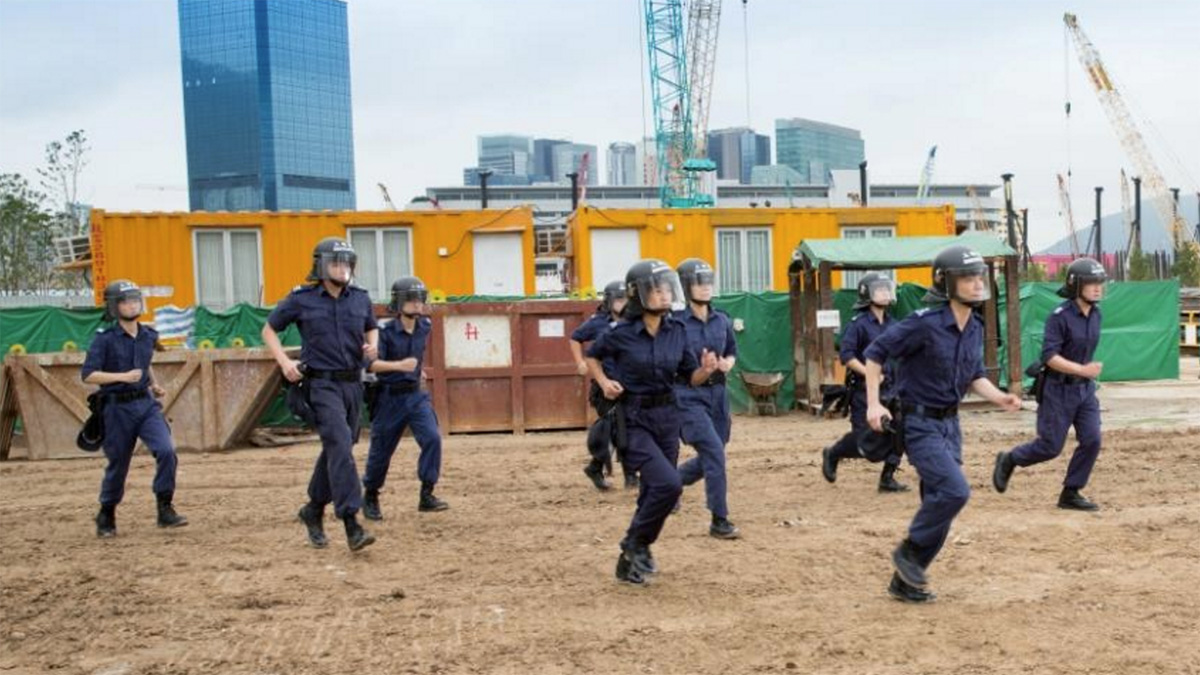
Refugees abuse welfare, or welfare abuses refugees?
Jul 26th, 2016 | Advocacy, Immigration, Personal Experiences, VF Opinion, Welfare | Comment
In popular and official discourses, the narrative of “refugees abusing welfare” is more common than the narrative of “welfare abusing refugees”. The parameters of assistance are well-known, though few outside the refugee community take them to heart: $1500 for rent, $1200 in food coupons and a few hundred dollars for utilities and transport. In other words, the mathematics of destitution!
The government justifies these miserly levels of assistance to avoid “creating a magnet effect”, perhaps overlooking the fact that the same words and strategy have been used for a decade during which the number of refugees has grew from the low thousands to the current 12,000 plus. The success of welfare policies designed to avoid attracting ‘rent and food beggars’ is highly debatable.
Further, the law advises that refugees are provided with comprehensive assistance, thus removing the need to work illegally. Yet it is arguable that many refugees are compelled to work precisely because their assistance is manifestly inadequate. Indeed even those recognized by authorities as “genuine” claimants are left in a state of destitution identical to everyone else.
Tortured so brutally by the police in his country that he “cannot lift more than 5 kilograms”, one successful USM claimants, let’s call him AJ, despairs about being homeless, again. AJ suffers from high blood pressure, diabetes and hypertension not experience prior to arriving here. His illness was perhaps exacerbated by poor diet, lack of proper medical assistance and prolonged physical and psychological suffering entailed by the horrible conditions of seeking asylum in Hong Kong.
Further, AJ lamented to Vision First that he was much happier before he received the positive result. “Before I was happier because my friends supported me. After I won, they became jealous and stopped talking to me. I call and they don’t answer the phone.” Paradoxically this experience is shared by other refugees who are shunned by friends and co-nationals when news of their success spreads.
AJ’s circumstances are not dissimilar to the hardship experienced by other successful refugees, and most asylum-seekers for that matter. The first problem we note is that it took Hong Kong Government ten year and one month to offer protection despite no new evidence being introduced in a decade. The second problem is that AJ is homeless, again. He laments, “I haven’t slept for five days as I worry what will happen and where to keep my things. What is the meaning of this protection, if I cannot get a room for $1500 (in rent assistance)? Does this piece of paper get me a room now?”
Without friends and family, without savings or charitable assistance, AJ relies entirely on the pittance of government assistance he gets from ISSHK, through the ‘humanitarian assistance’ of the Social Welfare Department. In reality, AJ has been abandoned in a state of deep and desperate destitution from which maybe only death will save him, as the state conditions behind his exile are unlikely to change in his lifetime.
AJ wrote to Immigration pleading for the right to work. Similar appeals typically go unheeded. The life of a successful claimant does not change radically with acceptance. In fact, it may get worse. It seems that in many cases it is not the refugees who are abusing welfare, but welfare that is abusing refugees.
What arguments does the government put forward to justify its indifference towards needless human suffering when so little could make a big difference to those it recognized as being in need of protection and thus not removable in the foreseeable future?
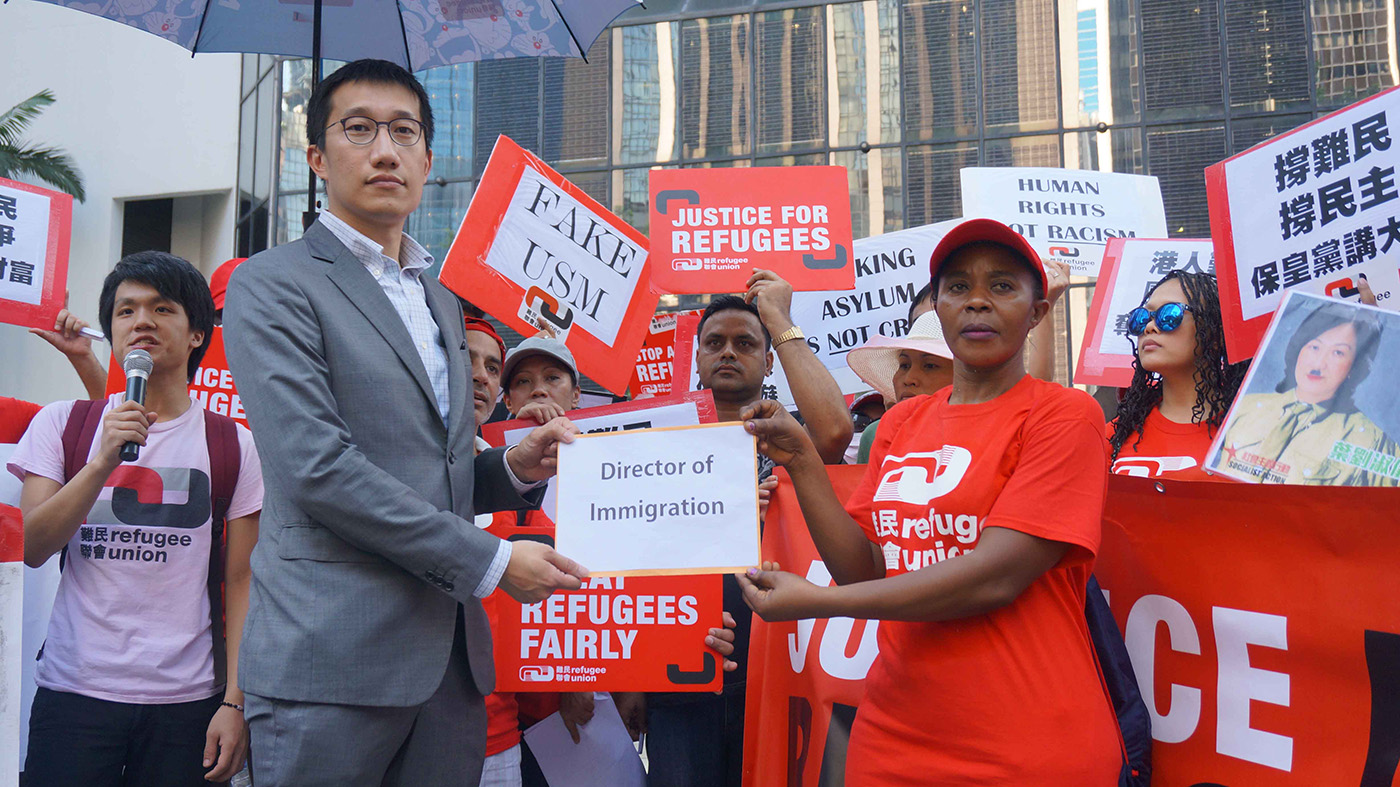
Hong Kong Government abuses Criminal Court Processes with Malicious Prosecution of Vulnerable Refugees
Jul 18th, 2016 | Advocacy, Crime, Housing, VF Opinion, Welfare | Comment
Over the past week the local media reported that 11 Bangladeshi refugees were arrested and charged by the Independent Commission Against Corruption (ICAC) for allegedly defrauding the International Social Service (ISSHK) of hundreds of thousands of dollars in rent assistance over several years. Vision First cannot but question this approach in view of the following.
The ISSHK, Fixers and Landlords Consortium
From March 2013 Vision First systematically exposed hazardous slums in which hundreds of vulnerable asylum seekers were knowingly and intentionally settled by ISSHK with government funds credited as rent assistance, not into the bank accounts of the asylum seekers (they do not have any), but into the accounts of unscrupulous fixers and purported landlords who exploited refugee tenants.
Gradually a disturbing picture emerged of at least 69 (sixty-nine) ghettos established by Hong Kong Chinese landlords in remote rural farmland and some located in dilapidated animal farms. These were distant from urban areas and hard to locate without particular knowledge.
Director and Patron of ISSHK: Tam Yiu-chung (DAB) and Regina Leung (wife of C.E. C.Y. Leung)
Among these ghettos, 64 (sixty-four) slums were situated in the geographical constituency of “New Territories West” represented by lawmaker and former head of the DAB party Tam Yiu-chung, who was also appointed a director of the board of ISSHK in 1999, a position he held until 2015. The remaining 5 (five) slums were allegedly supported by a fixer named Jane Chan, who operated an agency for foreign domestic helpers in Yuen Long, also within Tam Yiu Chung’s DAB controlled New Territories West.
A fraudulent web of deception began to emerge. Reaching across distant rural lands, this complex scheme blatantly exploited destitute and homeless refugees who desperately sought urgent shelter in their darkest days of asylum seeking in Hong Kong.
It appeared after attentive investigation that these refugees were exploited for financial gain by fixers who distributed and filled in ISSHK paperwork, by alleged landlords who provided false and/or misleading information, and by genuine landlords who rented out animal farms and agricultural land for residential use to unsuspecting and destitute refugees. Finally, ISSHK case-workers inspected and approved these unauthorized structures to intentionally settle the aforesaid homeless refugees for reasons that must be explained.
It is highlighted that Mrs. Regina Leung, the wife of the Chief Executive of Hong Kong, Mr. C.Y. Leung, has at all material times and at present day been the Patron of ISSHK, and a participant with the ISSHK board of directors. To this effect, Vision First reported about a protest by the Refugee Union outside Government House in March 2014 which failed to draw the sympathy and support of Mrs. Regina Leung. The Vision First blog of 14 March 2014 is available here.
What emerges is the picture and reality of an Orwellian “Animal Farm” environment controlled by and led by the consortium of ISSHK, real estate fixers and true/fake landlords.
The “Animal Farm” for Refugees
Vision First campaigned against the “Refugee Slums of Hong Kong” primarily because they were illegal and hazardous structures that endangered the lives of vulnerable refugees who received insufficient rent assistance to secure proper accommodation. In fact, a Sri Lankan refugee died in a slum blaze in February 2015 and exploding gas cylinders razed another slum a month later. Considerable danger from fire, explosion, flooding, collapse, electrocution and disease was always palpable upon our inspections.
Few visitors to the slums were in any doubt that the settling of homeless refugees in such dangerous huts was an egregious act by whoever was responsible for a scheme that started in 2006 and ended in 2016 when the Lands Department clamped down these illegal practices. Presumably there were also policy changes at ISSHK that quietly discontinued the questionable arrangements that generated the slums in the first place and sustained them for a decade beyond the public eye.
In July 2016, after three years of investigation, the Hong Kong Government decided to arrest and charge 11 (eleven) destitute Bangladeshi refugees who the ICAC allege of masterminding this impressive and widespread criminal enterprise that established and supported several slums in the fields of Ping Che, Fanling between 2010 and 2016.
Vision First has learnt that none of the fixers or purported landlords involved have been taken to court, while several staff of ISSHK are collaborating as prosecution witnesses. Not one person from ISSHK has yet to be prosecuted. Only the weakest and most vulnerable asylum seekers are being targeted and prosecuted by law enforcement that seems determined to fry some small fish.
It begs the question – Are these politically motivated prosecutions? The answer may well be found in the pages of George Orwell’s book – “Some people are more equal than others“.
The Politically Motivated Charges
The 11 (eleven) defendants were charged with fraud under the Theft Ordinance. They are accused of fraudulently misrepresenting residential addresses in Tenancy Agreements and housing forms allegedly to defraud ISSHK of rental assistance to live in some of the most disgusting, degrading and dangerous slums to house Hong Kong refugees in the past two decades.
All the defendants are illiterate, except for Bengali. They are generally unfamiliar with ISSHK housing procedures and the intricacy of relevant logistical and legal matters. A host of troubling questions emerge about those persons in control of the 69 (sixty-nine) slums and their complex documentary and financial transactions with ISSHK. The asylum seekers were ultimately subjected to living in inhumane, humiliating and degrading premises with no financial gain for many years. Why?
It is bizarre that the ICAC alleges that illiterate, destitute, and marginalized refugees allegedly masterminded a complex, pervasive fraud that credited tens of millions of tax dollars into the accounts of fixers, middlemen and purported landlords based on ISSHK having knowingly and intentionally sanctioning animal sheds for human habitation hidden far away from the public eye.
ISSHK – A Government Agent of the Social Welfare Department
It is highlighted that ISSHK is a Hong Kong Government contractor under the Social Welfare Department (SWD). In its capacity to provide services to non-refoulement claimants, ISSHK does not act in a role of an NGO that receives donations from the public. It is known that ISSHK does provide services as an NGO to other persons, but not to asylum seekers and refugees under its contract with SWD since 2006.
Political Persecution of the “Bengali Eleven” Defendants
Assisted by Vision First on a humanitarian basis and represented pro bono by Barrister Mr. Robert Tibbo (who acted for American whistleblower Mr Edward Snowden in Hong Kong) the 11 (eleven) defendants, or the “Bengali Eleven”, have pleaded not guilty to the fraud charges brought against them by the ICAC. They will fight robustly against this overt political persecution and will identify the true offenders.
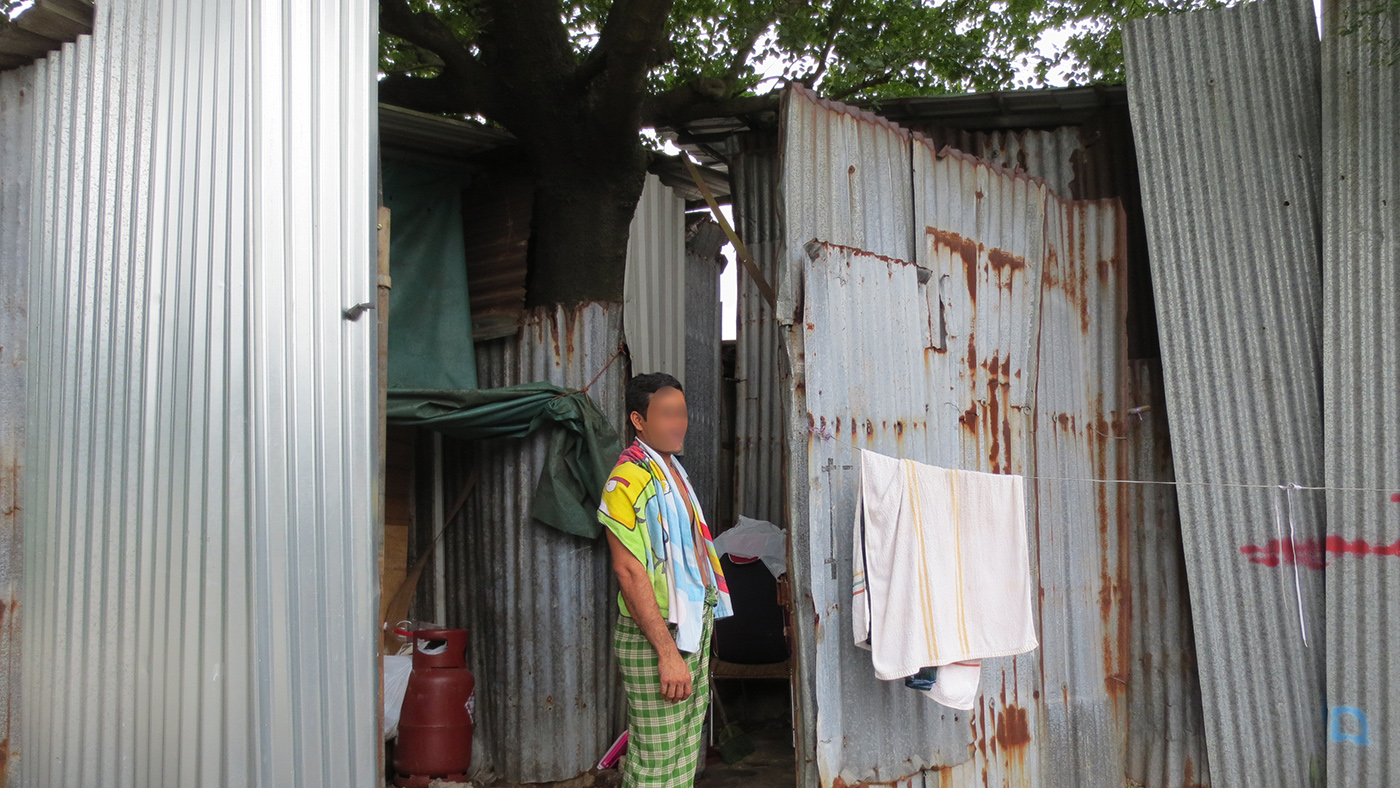
Several the “Bengali Eleven” arrested for fraud lived for years in the “Slum Under The Tree”, photographed above during a visit by Vision First in May 2013.
Demonizing refugees detracts from government’s recalcitrance
Nov 26th, 2015 | Crime, Immigration, Rejection, VF Opinion, Welfare | Comment
The heading of the South China Morning Post article “Hong Kong’s bogus asylum claim industry exposed: The black-market labour racket and the middlemen making millions” paints a terribly misleading picture that the vast majority of asylum seekers in Hong Kong are primarily motivated to work and make money.
Indian economic migrants are a very small minority
In fact the story that follows mainly discusses a very recent trend of some Indian nationals seeking asylum in Hong Kong, via the assistance of middlemen, who were induced under false pretenses to travel here with promises of employment. This relatively minor sub-group of migrants do not represent the majority of asylum-seekers who have sought refuge in Hong Kong.
While it is true that asylum is sometimes packaged with travel arrangements in India, and in many other countries for that matter, this is hardly a new situation, but one known to experts for over a decade. So why is it today firmly in the crosshairs of government officials?
The Hong Kong Government again attempts to shift blame away from its own failings
Apparently the authorities are outraged by the blatant exploitation of shortcomings and delays in the USM system which consequently allow claimants to extend stays and work illegally. While work might be the main objective for a minority of claimants, the hard question is: Who is responsible for establishing an asylum process that twice in 20 years was deemed unlawful and today still presents shortcomings that are reasonably exploited? Should the captain blame the water for entering a leaky boat?
The Hong Kong courts have repeatedly caught out the Hong Kong Government for its intentionally designed illegal, or vastly incomplete, screening mechanisms. The Court of Final Appeal has been compelled to hold the Hong Kong Government accountable for its refusal to recognise asylum seekers’ fundamental rights to protection under the Hong Kong Bill of Rights, the ICCPR and under article 33 of the Refugee Convention. The Hong Kong Government took an adversarial approach to human rights that caused the majority of delays in the screening of thousands of refugees. One must not forget that the government itself has been recalcitrant. To date the Hong Kong Government has failed to apologise for its obstinate stance that has caused so many asylum seekers to suffer in limbo in Hong Kong, many for over a decade.
The actual reality of asylum seekers circumstances
Looking at the big picture, the actual data must be considered critically: 197 of 10,600 refugees arrested for working (1.86%) is hardly indicative of a crime wave, considering that 100% of asylum-seekers live below the poverty line without employment rights. It is no mystery that welfare is structured with a deterrence objective to discourage claimants from remaining here. In this context, it is doubtful that any refugee makes ends meet without raising funds somehow, as NGOs are certainly not bridging the gaps and have neither the capacity, nor mandate to do so.
Less than 200 arrests this year for working illegally strongly suggests something other than abuse is at play here. Perhaps law enforcement is slacking, or more likely the Security Bureau has greater priorities, which are not reflected in PR-driven announcement of joint operations that raid small restaurants, recycling yards, or flats under construction. On the one hand, a heavy immigration hand cannot fix the incandescent social-political problems caused by the failed asylum/welfare system. On the other, a heavy hand and strong PR have the effect of mobilizing public opinion against vulnerable asylum seekers. This is a shameful and irrational attempt to marginalise and demonise innocent and highly vulnerable men, women and children.
Local businesses are unable to convince residents to take up labour intensive jobs
Hong Kong suffers a severe labour shortage, affecting small businesses in particular, which generates a considerable demand for illegal workers. Jailing refugees who fill this labour vacuum might produce sensational news photos, but were the ban on refugee work stringently applied, grave consequences would be suffered by local employers.
Is demonizing refugees an expedient ploy to overshadow the fact that the Hong Kong Government does not hold the moral ground, as it formulated an asylum/welfare system that must be infringed to survive? Arrests only serve to push refugees further underground into the dark, unsanitary and dangerous workplaces where their visibility is reduced as much as their wages. If you stop to think about it, who are the demons?
Now a word in defense of Indian refugees. First, there is nothing newsworthy about the percentage they represent that is unchanged since June 2012, according to this press release. Second, Human Rights Watch reported that, “Members of India’s security forces continue to enjoy impunity for serious human rights violations.” Third, it is risible that consular authorities assure India is free of religious, sectarian or political persecution. You may also believe that China does not persecute human rights lawyers, as it recently assured the United Nations Committee on Torture.
Vision First reiterates that citizens from any country may seek asylum in Hong Kong and their claims must be approached on the premise that they are genuine, unless and until it is proven that they cannot be substantiated by the claimants. Meanwhile, economic needs are among the reasonable expectations of destitute refugees let down en masse by Hong Kong Government, despite assurances to the contrary.
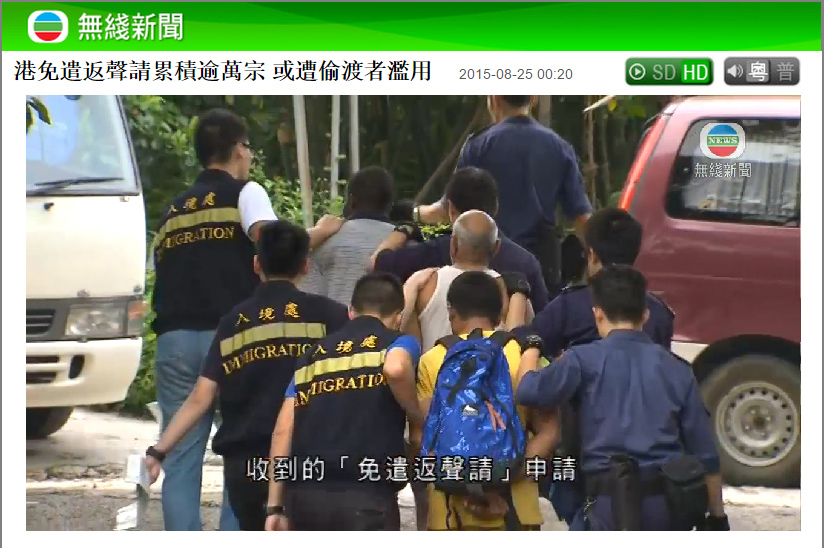
Reality undermines rosy picture painted by Security Bureau at UN hearing
Nov 20th, 2015 | Advocacy, Government, Immigration, VF Opinion, Welfare | Comment
On 17 November 2015, at a hearing of the United Nations Committee against Torture in Geneva, Hong Kong Government’s permanent Secretary for Security put on record the impeccably crafted Unified Screening Mechanism (USM) with assurances that “this mechanism has exceeded what is required under Article 3 of the Convention (against Torture).”
Mr. Law stated eloquently that Hong Kong “has always strived to protect human rights and fulfill the requirements and commitments under the Convention against Torture … and other international human rights instruments that are applicable to the HKSAR”.
Mr. Law showcased the comprehensive services offered by Hong Kong Government, including: “… accommodation, food, clothing, other basic necessities, transportation and utilities allowances, medical services and education for minors … rental deposits and property agent fees”. Further he added that: “In 2015 we introduced food coupons in lieu of the provision of in-kind food assistance”.
The report paints an attractive picture hard to fault from the distant Swiss mountains. Let us summarize the extensive arrangements provided free-of-charge to (lucky?) refugees in Hong Kong:
- Human rights? … Yes
- Publicly funded legal assistance? … Yes
- Interpretation services? … Yes
- Independent appeal mechanism? … Yes
- Training of all decision-makers? … Yes
- Accommodation? … Yes
- Rental deposits? … Yes
- Property agent fees? … Yes
- Food coupons? … Yes
- Clothing? … Yes
- Transportation? … Yes
- Utilities allowance? … Yes
- Medical services? … Yes
- Education for minors? … Yes
The devil however is in the detail. The range of the above 14 services masks structural failures that the authorities are plainly uninterested to address. The complexity of the USM comes at the expense of protection and the variety of humanitarian assistance sacrifices tangible welfare, as in reality hardly a service meets the basic needs of refugees.
The faults of the system are well known to attentive readers and not worth repeating to those who are indifferent, apathetic or unconcerned that Hong Kong Government fails to meet its constitutional duties towards the refugee community. Vision First is alarmed that the policies and behaviour of the government are not consistent with its promise to safeguard refugee rights and ensure their wellbeing.
Facts speak for themselves: 37 claims were substantiated since 1992 among over 18,000 bids for asylum; public lawyers and appeal board appear comfortable with the acceptance rate; refugee slums were systematically erected in animal farms financed by tax-dollars; rental deposits and property agent fees were introduce to address such illegality; refugee protested for 200 days before problematic food rations were reluctantly replaced by food coupons. The list goes on …
How many medical prescriptions issued to refugees include Panadol? How many refugees received clothing and shoes or pots and pans from the government? How much do refugees spend to top up insufficient rent and utilities? How much food, clothing daily necessities do refugees buy without being allowed to work? How many education and medical costs are refugees forced to pay with cash they cannot earn? The questions are endless …
Vision First appraises inconsistencies of this magnitude as unjust, hypocritical and shameful for an international city that wishes to be perceived as fair, sophisticated and respectful of human rights and the dignity of every man, woman and child who lives here – which is integral to our humanity.
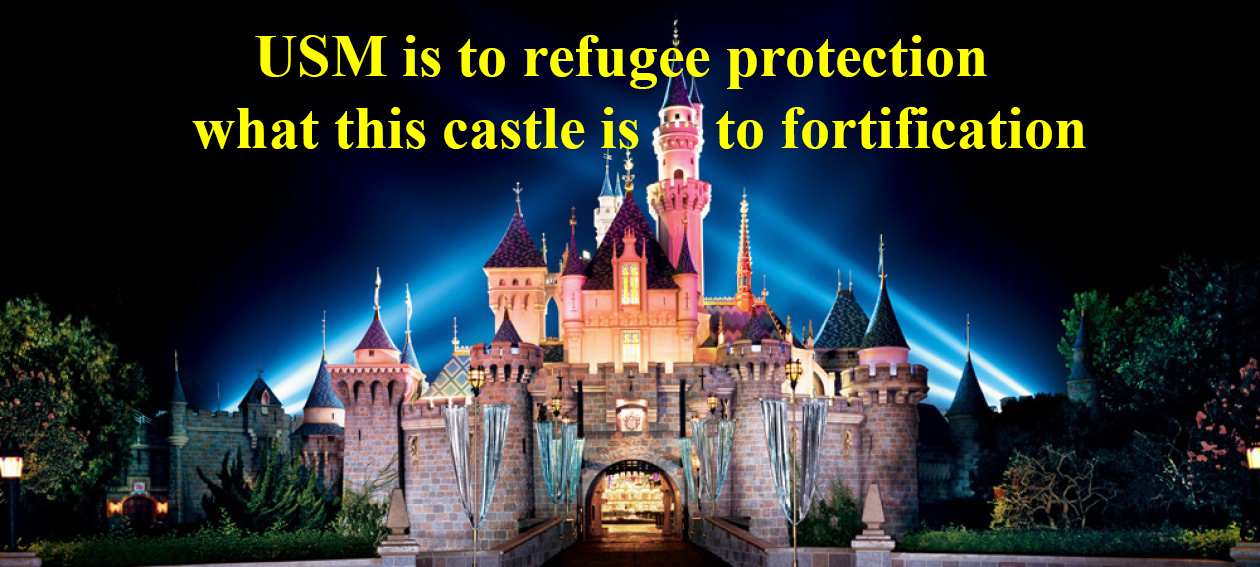
VF comments to questions in Legco on 28 Oct 2015
Oct 28th, 2015 | Government, Immigration, Rejection, VF Opinion, Welfare | Comment


